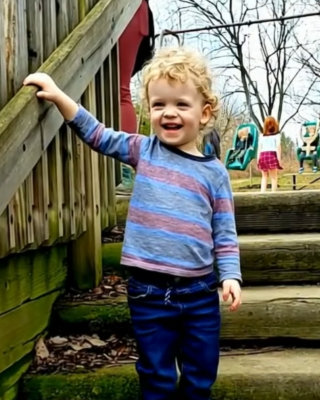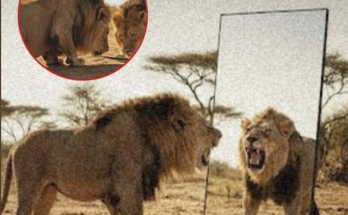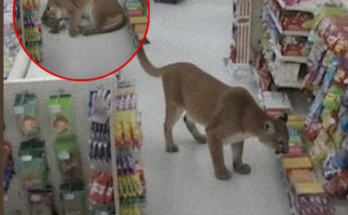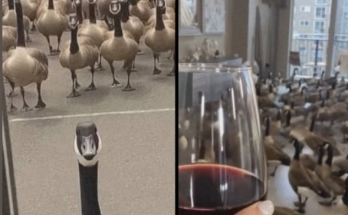He’s three. Barely talks in full sentences. But when we walked past the swings, he stopped dead and yelled, “Darya!”
I froze. Not because of the name—but because of how he said it. Like a call, not a question.
Darya was my cousin. We used to come to this same park every Sunday until the summer everything fell apart. Her family moved out of state after the “incident,” which no one ever explained to us kids. The adults just stopped saying her name.
My nephew kept pointing. “She’s on the green one,” he said, grinning. “Wants to show me the box.”
There is a green swing. Two of them, actually. One with a girl in pigtails, the other empty.
But then I looked closer. The girl on the swing with pigtails had her back to us. She was pumping her legs high, real high. Too high for a kid that small. And her hair—brown with a streak of gold, just like Darya’s had been.
I blinked. My heart was doing this uneven thump thing, like it couldn’t decide if it was scared or excited. I wanted to ask the girl her name, but the words stuck.
My nephew tugged my hand. “Can we go see her? She said hurry.”
I shook my head. “Let’s sit down first, buddy.”
We settled on a nearby bench, but he kept wriggling, eyes locked on that green swing.
“She has the box,” he whispered.
I hadn’t heard anyone mention a box in over two decades. Not since that summer, the one where Darya vanished.
She didn’t die—not officially, anyway. Her family said she got hurt, then they moved away, and we never saw her again. No funeral, no goodbye. But one night, right before they left, my aunt came to our house and hugged my mom so tight I thought they’d break.
“She’ll never be the same,” she’d said. “But maybe that’s better.”
I never understood what that meant.
Until now.
The swing slowed. The girl jumped off and ran across the grass. My nephew lit up like a Christmas tree. “That’s her! That’s Darya!”
She stopped by the sandbox. Turned slightly. And I saw her face.
Not a kid.
A teenager.
Darya had been eight when she vanished. This girl looked about sixteen. But it was her. The same sharp cheekbones, the little dimple when she smiled. She was older, but unchanged.
“How…?” I muttered.
“She wants me to come,” my nephew said. “Can I go?”
“Not yet.” I stood, pulse pounding. “Stay here. Just for a second.”
I walked toward the girl, slowly, like I might spook her if I moved too fast. But she just waited.
When I got close, she smiled wider. “Hi,” she said, voice soft but familiar. “You remember me?”
I nodded. “Darya?”
She looked relieved. “I knew someone would. Eventually.”
“You’re… here?”
“I never really left,” she said. “Just… stopped being seen.”
That made no sense. But I didn’t push.
She knelt beside the sandbox and dug with her bare hands. After a minute, she pulled out a small wooden box, dirt clinging to the corners. I recognized it.
We used to call it the Treasure Box. Painted purple with gold stars, locked with a rusty clasp. We buried it together the week before the “incident.”
“I’ve been waiting for someone to open it,” Darya said. “I couldn’t. Not alone.”
I crouched beside her. “What’s in it?”
“Truth.”
That should’ve sounded cheesy. It didn’t.
She placed it gently in my hands. It felt warm, even through the layers of time and soil. I unlatched the clasp.
Inside was a folded piece of paper, a tiny plastic lizard, and a faded photo of the two of us on this exact swing set.
I unfolded the paper first.
It was in her handwriting. Big, looping letters. But not a letter—more like a confession.
“If something happens, it’s because I told the truth. I saw what Uncle Greg did. I saw where he put the key. I saw him cry after, like he didn’t want to. But I can’t lie about it anymore. If they make me disappear, I hope someone finds this.”
The world tilted.
Uncle Greg.
My mother’s brother. He used to come with us to the park. Bring ice cream. Tell jokes.
He died in a car accident the week Darya vanished.
My chest felt tight. “You saw him do something?”
Darya nodded. “Something bad. I told. I wasn’t supposed to.”
I stared at the note again. “He hurt someone?”
She nodded once more. “The neighbor girl. Rachel. He said she fell. But I saw.”
Rachel. I remember. She died that summer. Fell from the second floor, they said.
But there were whispers. And now…
Now I knew.
“I tried to tell,” Darya said. “But when they realized I wouldn’t lie, they hid me. Sent me somewhere quiet.”
“Your parents?”
“They said it was better than what might happen to me. I think they believed it. They kept me safe, but not really alive. I didn’t speak for years.”
My throat closed. “Why now? Why show up now?”
She looked toward my nephew. “Because he heard me. And because you were ready.”
I didn’t know what to do. What could I do?
“Take the note,” she said. “Take it to someone who can read it. Who can make it real. Even if it’s late.”
“But what happens to you?”
“I move on,” she said. “Not gone. Just forward.”
She stood. Walked back to the swings. Sat down gently, like she was lighter than air.
I turned back to the bench.
My nephew was staring, wide-eyed.
“She says thank you,” he whispered.
When I looked again, the swing was empty.
I never saw her again.
But I did take the note.
I brought it to my mom first. She went pale, sat down, and read it three times.
Then she made some calls.
Eventually, there was an investigation. Old files reopened. My mom and aunt testified. Turns out, Rachel’s case had always seemed off, but no one pushed back hard enough.
The note changed everything.
In the end, the truth came out.
Uncle Greg had a history.
Rachel wasn’t the first, or the last, he’d hurt.
But no one had ever had proof.
Until Darya.
Her name is said now. At family gatherings, in stories, in prayers.
They even put up a bench at the park with her name on it.
I sit on it sometimes with my nephew.
He always smiles at it.
“She’s happy now,” he says.
I believe him.
Because the swing never creaks anymore.
And the sandbox stays still.
The box is in my drawer. The note in a frame.
Some things stay buried too long.
But when they surface, they change everything.
Here’s the thing: Kids see what we ignore. They hear what we silence. My nephew barely spoke, but he listened with his whole heart.
Maybe that’s what it takes.
When someone disappears, it doesn’t always mean they’re gone.
Sometimes, they’re waiting for someone brave enough to remember them.
To speak for them.
To make it count.
And sometimes, justice doesn’t come right away—but it still comes.
Even if it takes 22 years.
So if a kid points at an empty swing and says a name you’ve buried, don’t ignore it.
It might just be the beginning of something right.
Something overdue.
And something beautiful.
If this story touched you, don’t forget to like it, share it, and tag someone who believes in listening to the quietest voices.
They’re often the ones that carry the truth.



